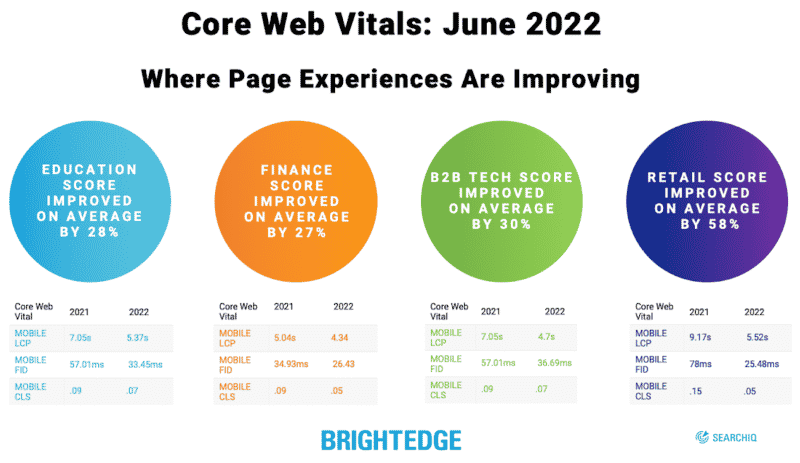Organizations have been investing resources into improving their Core Web Vitals scores, according to new research.
Enterprise SEO platform BrightEdge has compared the top rankings for 500 keywords, from this year to last, in four markets: education, B2B technology, finance and retail.
Core Web Vitals, one year later. It’s been just over a year since Google’s page experience update started rolling out June 15, 2021. It was completed Sept. 2.
The three Core Web Vitals website performance metrics were a subset of the overall Page Experience Update. Those metrics are:
- Largest Contentful Paint (LCP) – loading, target 2.5 seconds.
- First Input Delay (FID) – interactivity, target 100 milliseconds. (Note: Google announced in May that it might replace FID with a new metric called INP – Interaction to Next Paint).
- Cumulative Layout Shift (CLS) – visual stability, target 0.1.
Page experiences are improving. Here’s the data from BrightEdge:
On average:
- Retail scores improved by 58%. BrightEdge noted that retail giants have made significant strides in improving poor experiences – last year, top-ranked retail sites failed to meet Core Web Vitals metrics.
- B2B tech scores improved by 30%. Publishers and resources from SaaS platforms have made good gains.
- Education scores improved by 28%. More .gov sites are ranking and have good Core Web Vitals scores.
- Finance scores improved by 27%. This sector was best prepared last year and perhaps due to that saw the least amount of performance gains.
Why we care. SEOs weren’t sold on Core Web Vitals. However, this research shows that companies have been taking Core Web Vitals seriously. It is impossible to point to Core Web Vitals as the sole reason for any ranking boosts or declines. But smart SEO requires driving incremental gains. And every possible positive signal you can give Google (such as good Core Web Vitals scores) is a potential way to positively influence your ranking and visibility.
New on Search Engine Land
.
Follow us on Facebook | Twitter | YouTube
WPAP (907)



